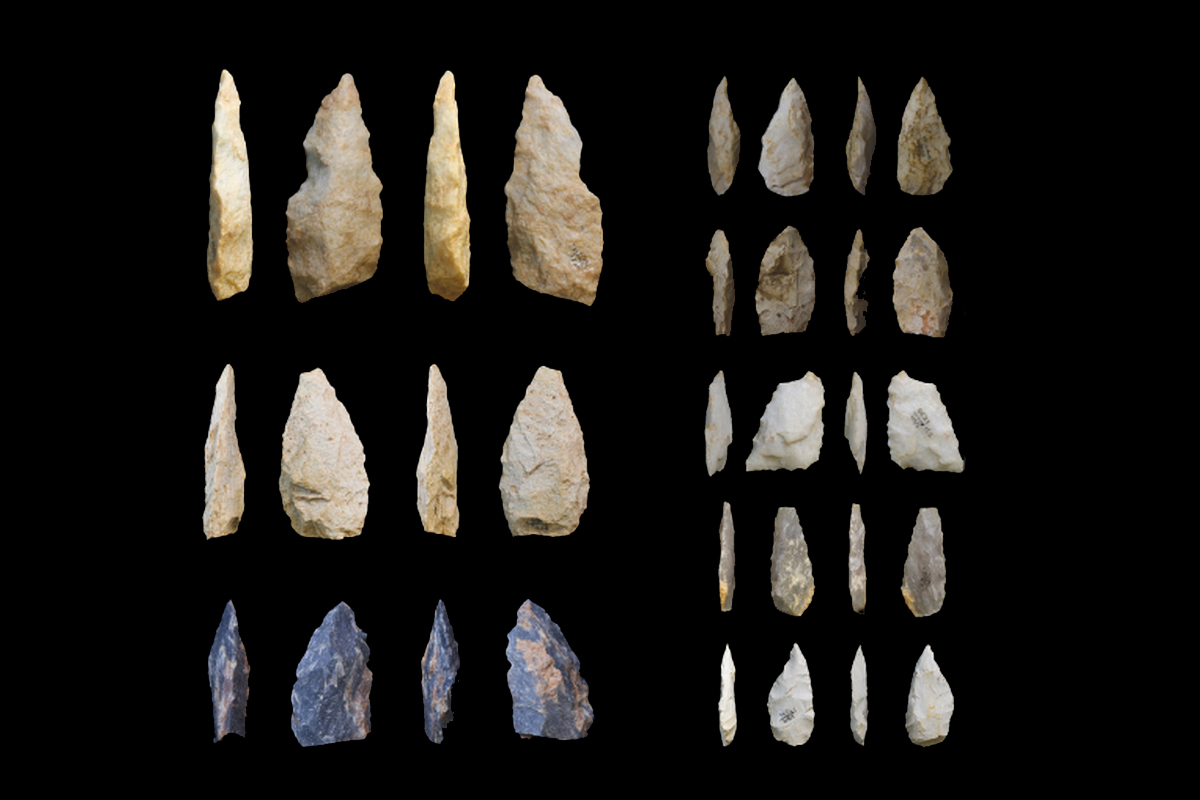An international team, led by researchers from MNCN-CSIC and IPHES-CERCA, have discovered 40,000-year-old stone tools in the African equatorial rainforest, providing the first evidence of systematic human occupation in rainforest environments.
The discovery was made at the Río Campo sites in Equatorial Guinea, where evidence shows that early Homo sapiens thrived in one of the planet’s most challenging ecosystems. Historically, studies on human evolution have concentrated on Africa’s arid and semi-arid regions.
Archaeologists believe that survival at the Río Campo sites was partly due to the use of sophisticated stone tool technologies. The tool assemblage reflects advanced craftsmanship and adaptive cultural strategies, enabling early humans to navigate dense vegetation, extreme heat, and unpredictable resources.
“This evidence transforms our understanding of how modern humans adapted to environments as complex as the African equatorial jungles, said Professor Antonio Rosas, lead author of a study published in the journal Quaternary Science Reviews.
Archaeologists examined 30 outcrops, with 16 outcrops revealing assemblages of intricate lithic tools. Among the 418 recovered objects, are bifacial points, Levallois cores, and large tools used for hunting and material processing.
Using radiocarbon dating and optically stimulated luminescence (OSL), the tools date from between 76,000 and 20,000 years ago during the Upper Pleistocene.
“With the results from Rio Campo, we expand the map of prehistoric human behaviour and place Central Africa as a fundamental piece in the cultural and biological evolution of our species,” says Rosas. The discovery also shows that tropical forests, despite adverse environmental conditions, were essential settings in the evolutionary history of modern humans.
Header Image Credit : IPHES-CERCA
Sources : IPHES-CERCA – Rosas, A., Tabernero, A., Fidalgo, D., Fero, M., Ebana, C., Ornia, M., Fernández, J., Sánchez, S., Morales, JI (2024). Middle Stone Age (MSA) in the Atlantic rainforests of Central Africa. The case of Río Campo region in Equatorial Guinea. Quaternary Science Reviews , 349 DOI: 10.1016/j.quascirev.2024.109132





